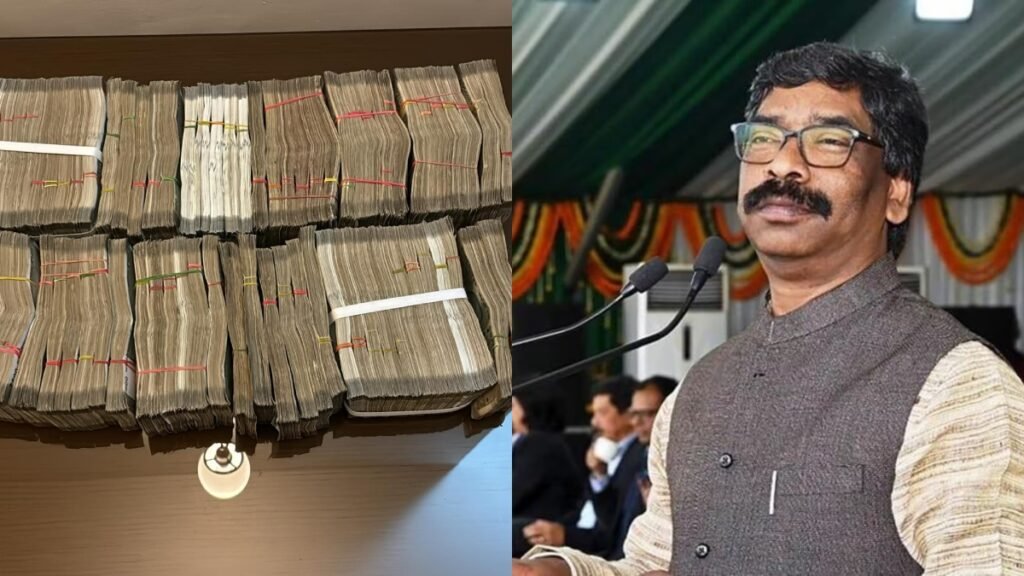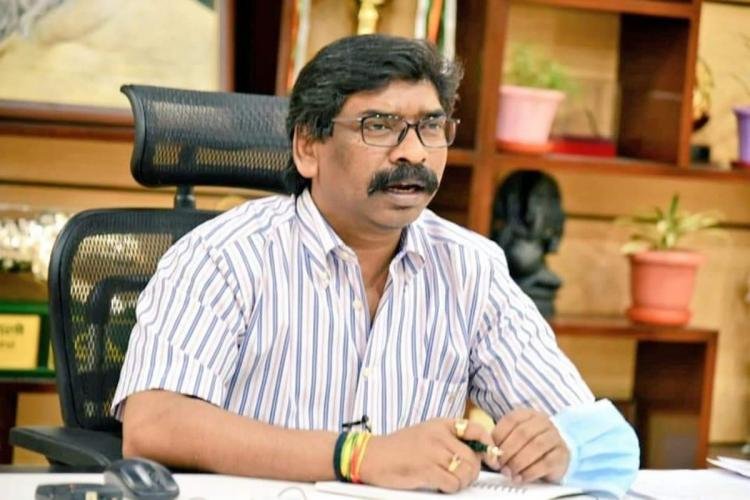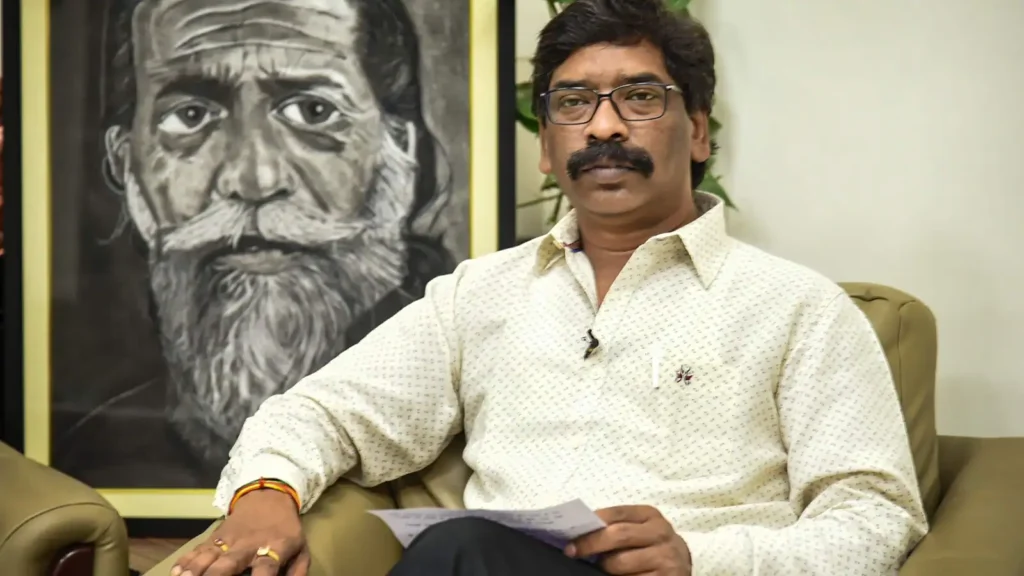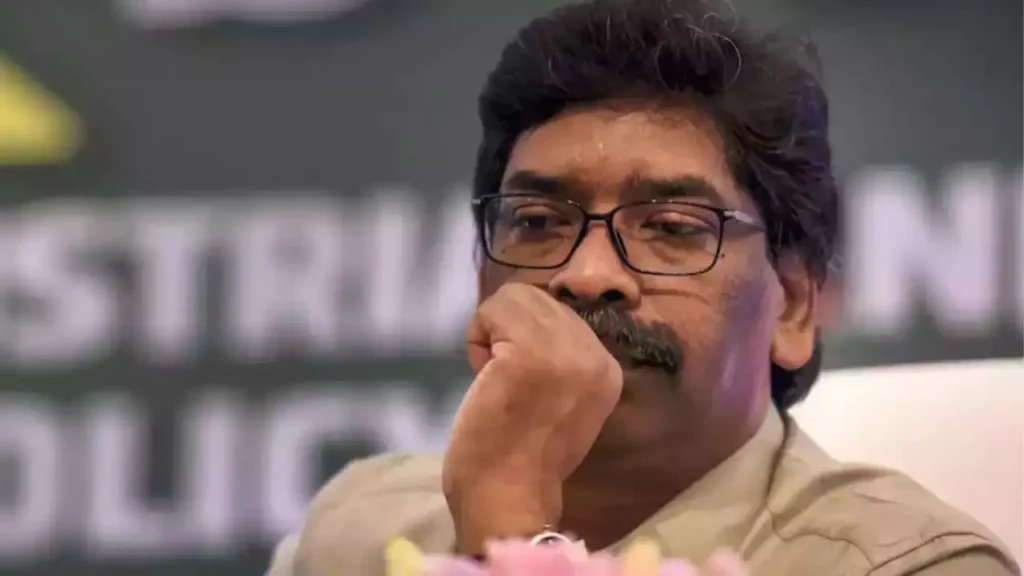Introduction
In a significant turn of events, former Jharkhand Chief Minister Hemant Soren was release from the Birsa Munda Central Jail in Ranchi after grant bail by the Jharkhand High Court. The court’s decision came in the midst of a high-profile land scam case that has captured national attention. This article delves into the intricacies of the case, the court’s reasoning, and the political implications of this development.
The Charges Against Hemant Soren
Hemant Soren, a prominent leader of the Jharkhand Mukti Morcha (JMM), was arrest by the Enforcement Directorate (ED) on January 31 on charges of money laundering linked to a land scam. The ED accused Soren of orchestrating a scheme involving fictitious transactions and forged documents to illegally acquire 8.86 acres of land in Ranchi, worth crores of rupees. The central agency alleged that Soren misused his position as the chief minister to manipulate official records and facilitate the land acquisition.
The arrest came after a prolonged investigation, during which Soren was repeatedly summoned by the ED. The central agency’s counsel, SV Raju, presented evidence from witnesses who confirmed Soren’s involvement in the illegal land deal. The ED also highlighted the role of Soren’s media consultant, Abhishek Prasad, who allegedly admitted to manipulating records under Soren’s instructions.
The Court’s Decision
Despite the severity of the charges, the Jharkhand High Court, presided over by Justice Rongon Mukhopadhyay, granted bail to Hemant Soren. The court’s decision was based on several key factors. Firstly, the court noted that the prosecution’s case lacked concrete evidence directly linking Soren to the acquisition and possession of the disputed land. In its order, the court stated, “…broad probabilities (of the case) do not specifically, or indirectly, assign the petitioner to be involved in the acquisition and possession, as well as concealment (of land).”
Furthermore, the court observed that none of the revenue records bore any imprint of Soren’s direct involvement. This finding cast doubt on the ED’s claims, which appeared ambiguous when considered against the backdrop of the allegations. The court also emphasized that there was no likelihood of Soren committing a similar offence while out on bail, thereby satisfying the twin conditions for granting bail under the Prevention of Money Laundering Act (PMLA).
Political Reactions and Implications
The granting of bail to Hemant Soren has significant political ramifications, especially considering the timing of his arrest and subsequent release. Soren’s arrest occurred just weeks before the Lok Sabha elections, a move that he and his supporters have characterized as a politically motivated attempt by the ruling Bharatiya Janata Party (BJP) to undermine the opposition.
Following his release, Soren received a warm welcome from JMM leaders and supporters, who gathered outside the Birsa Munda Central Jail in Ranchi. Slogans were raised in support of Soren as he walked out of the prison alongside his wife, Kalpana Soren. The former chief minister visited his parents, Shibu and Roopi Soren, soon after his release, sharing pictures on social media and expressing his gratitude to the people of Jharkhand.
West Bengal Chief Minister Mamata Banerjee also expressed her happiness over the court’s decision. In a post on X (formerly Twitter), Banerjee stated, “Hemant Soren, an important tribal leader and Chief Minister of Jharkhand, had to resign because of a case, but today he has received bail from the Hon’ble High Court! I am very happy with the great development and am sure that he will start his public activities immediately.”
Legal Journey and Setbacks
Hemant Soren’s legal journey has been fraught with challenges. Initially, his bail plea was reject by a special court in Ranchi, which point to an “abundance of documents that lay foundation for the arrest and remand of petitioner.” This setback was follow by the Jharkhand High Court rejecting a plea to quash his arrest. The Supreme Court also refuse to grant interim bail, despite arguments from Soren’s legal team that he needed to campaign for his party in the upcoming elections.
During these hearings, the ED argued that Soren had attempted to subvert the investigation by misusing state machinery, thus opposing his request for interim bail. The agency cited the involvement of ED officers at the SC/ST police station as an example of Soren’s alleged efforts to interfere with the investigation.
Senior advocates Kapil Sibal and Meenakshi Arora, representing Soren, argue that the charges against him were politically motivated and lacked substantive evidence. They contended that even if the allegations were true, they would constitute a civil dispute over property rights rather than a criminal offence under the PMLA.
Future Prospects and Conclusion
The bail granted to Hemant Soren marks a crucial moment in his political career and the broader political landscape of Jharkhand. Soren, who resigned as chief minister hours before his arrest, has maintained his innocence throughout the ordeal. His legal team continues to argue that the case against him is a fabrication aim at tarnishing his reputation and disrupting his political activities.
With his release, Soren is expect to re-engage with his party and constituents, working to regain political ground lost during his incarceration. The case also underscores the complex interplay between legal proceedings and political dynamics in India, where allegations of corruption and misuse of power are often intertwine with electoral strategies.
As the investigation continues and Soren’s legal battles unfold, the focus will remain on how these developments influence the political narrative in Jharkhand and beyond. For now, the granting of bail provides Hemant Soren a respite and an opportunity to rebuild his political standing, reinforcing the importance of judicial scrutiny in cases involving high-profile political figures.
Conclusion
In summary, the “Hemant Soren bail” case highlights the intricate relationship between law and politics in India. The court’s decision to grant bail based on a lack of direct evidence and the improbability of reoffending underscores the necessity of a fair and impartial judicial process, even in politically charged cases.













